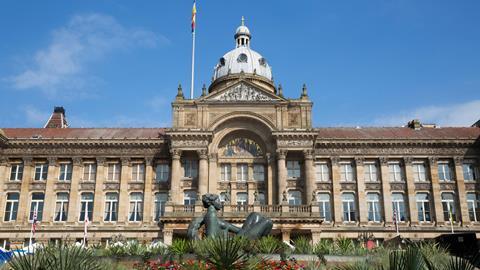For local government lawyers, taking the role of monitoring officer is the pinnacle of their in-house career. The role, which usually goes to a lawyer, means they join the ‘golden triangle’ of permanent senior staff at the top of the council. Other members are the chief finance officer and the chief executive.
And of course the monitoring officer role comes with significant responsibilities. But interviewing lawyers for the Gazette’s local government feature, it was obvious that their responsibilities are not well backed up by the law. They lack the legislative backing of the statutory powers they need to be the effective operators in local government charged with keeping good governance.
I’m convinced by arguments that the Localism Act 2011 should be reviewed to address its failure to give lawyers the support they need.
When the Coalition government abolished the Standards Boards regime in the Localism Act 2011, leaving it up to councils to devise their own codes of conduct, it left monitoring officers at local authorities in an unenviable position.
Duty-bound through the act to promote and maintain high standards of conduct, they were left without an arsenal of effective sanctions with which to discipline wayward councillors.
They could use the nuclear option - a Section 5 report under the Local Government and Housing Act 1989 concerning an unlawful decision, action or maladministration by an authority that needs to be reported to full council - or try to impose measures such as enforced apologies, removal of responsibilities or training, but not much in-between.
Browne Jacobson’s recent report into the role of the monitoring officer, in conjunction with the Lawyers in Local Government (LLG) and the Local Government Information Unit (LGiU), is instructive.
The report revealed that the toothlessness introduced by the Localism Act has bred a culture of disrespect and contempt for the rules and existing institutional frameworks within councils.
Indeed, some councillors see the presence of a grievance process on their records as proof of their maverick status. This has made the monitoring officer’s job in some instances verging on untenable, at a time when local government is in crisis and the enforcement of good governance is more important than ever.
As says Rachel McKoy, monitoring officer at the London Borough of Newham: 'The absence of effective sanctions means that monitoring officers have not had much acknowledgement or respect, and have had to argue for a seat at the table of the Golden Triangle.'
Successive councils, most recently Nottingham City Council and Birmingham City Council (pictured above), have issued s114 notices indicating that they are sliding into the red. With more announcements expected over the next two years, a position that stands as a bulwark against wrongdoing and maladministration should be supported and valued.
Peter Ware, head of government at Browne Jacobson and a lead on the report, was frank on this: 'It is important that the narrative from central government should seek to support rather than belittle local government. The Localism Act and the lack of an enforceable standards regime is not helpful for members, and the lack of statutory backing is often undermining monitoring officers.'
Sitting at the heart of the 'Golden Triangle' – together with the CEO and CFO – the monitoring officer is the legal and ethical guardian of the organisation, ensuring that governance is sound, that the local authority operates within its powers, and that high standards of conduct are upheld.
Its already broad girth of responsibilities has expanded in recent years through the explosion of social media to managing councils’ reputational risk and response to direct public concerns.
Yet without recourse to effective sanctions reinforced by statute, monitoring officers are left exposed with high levels of responsibility and little redress. The rise in independent councillors across councils with no overall control has fomented this lack of accountability, with no chief whip to turn to when these individuals overstep the line.
At a time when the retention of lawyers in local government is in crisis, monitoring officers need a robust legal basis upon which to act, so that they can provide the leadership, legal rigour and strong management to steer councils through these difficult times.
Councils that fail spell trouble for central government too – and can be a disaster for residents who rely on council services.
As Ware told me: 'Councils that are well run have legal at the heart of decision-making and good governance, and value lawyers rather than see them as just a service line… When things go wrong, you can very often trace that back to bad governance and decision-making that is not underpinned by a sound legal foundation. Investing in the support of efficient, empowered, commercially focused lawyers is of huge benefit to local government and the public they serve in the long term.'
Katharine Freeland is a freelance journalist. Her feature on local government can be read here
































1 Reader's comment